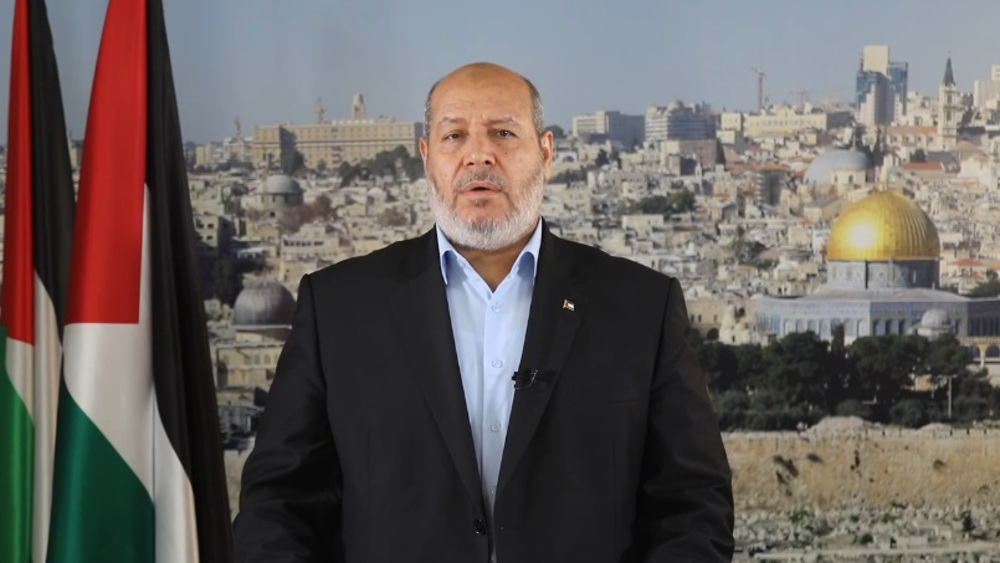New US administration will have to abide by JCPOA: Iran FM
Iranian Foreign Minister Mohammad Javad Zarif has criticized the new US administration for failing to fully live up to its commitments under the landmark 2015 nuclear agreement with Iran, saying the White House would finally have to abide by the deal.
“Unfortunately the behavior from the new administration in Washington is not very promising," Zarif told reporters after a meeting with Norwegian Foreign Minister Borge Brende in Oslo on Monday.
“But, we believe that at the end of the day they [US administration] will find it necessary to abide by the deal and we believe the rest of the international community will make it clear…that it considers the deal as a multilateral agreement and not a bilateral agreement between Iran and the United States,” the Iranian minister added.
During his presidential campaign, US President Donald Trump had promised to repeal the nuclear accord which he referred to as a "disaster" and "the worst deal ever negotiated."
Zarif expressed regret that the US has "not lived up fully" to its commitments under the JCPOA and said, “We believe that the nuclear agreement is the result of multilateral processes endorsed by the Security Council.”
As verified by the International Atomic Energy Agency (IAEA) time and again, Iran has been committed to the nuclear deal, he said.
Zarif added that the JCPOA had proved to be an “important achievement” for the international community in reducing tensions and in preventing an unnecessary crisis from happening.
Iran and the five permanent members of the United Nations Security Council – the United States, France, Britain, Russia and China – plus Germany signed the agreement in July 2015 and started implementing it in January 2016.
Under the JCPOA, Iran undertook to put limitations on its nuclear program in exchange for the removal of nuclear-related sanctions imposed against Tehran.
In an introductory statement to the Board of Governors in Vienna on Monday, IAEA Director General Yukiya Amano said the agency continues to verify Iran's fulfillment of its commitments under the JCPOA.
“The Agency continues to verify the non-diversion of nuclear material declared by Iran under its Safeguards Agreement.”
Iran wants to have positive relations with all neighbors
In response to a question on Iran sending aid to Qatar amid rising tensions between Doha and Saudi Arabia, Zarif said, “We always want to have positive relations with all your neighbors” without excluding any of our neighbors.
He added that what Iran is sending for Qatar was actually within normal trade between the two countries and was not considered as aid by Iran.
Tensions escalated between Riyadh and Doha after Trump's visit because of an article in Qatar's state-run news agency in which the emir criticized the US, Saudi Arabia, and their client states for attempting to stir up tensions with “Islamic power” Iran.
Saudi media accused Qatar of having “betrayed” the other Arab countries particularly at a time when they had attempted to stage a show of “unity” against Iran in an extravagant series of events in Riyadh.
Saudi Arabia, the UAE, Egypt and Bahrain cut off diplomatic ties with Qatar on June 5, after officially accusing it of “sponsoring terrorism.”
The administration of Saudi-backed and resigned Yemeni president Abd Rabbuh Mansur Hadi, Libya, the Maldives, Djibouti, Senegal and the Comoros later joined the camp in ending diplomatic ties. Jordan downgraded its diplomatic relations with Qatar as well.
Qatar's Foreign Ministry later announced that the decisions to cut diplomatic ties were unjustified and based on false claims and assumptions.
"Qatar has been the target of a systematic incitement campaign that promoted outright lies, which indicates that there was a prior intent to harm the state," the statement said.
Zarif hopes US would pursue diplomacy in Syria
The Iranian foreign minister once again emphasized that no military approach could solve the Syria crisis and expressed hope that the new US administration would come to the conclusion that the “military option was not the solution [to the issue] and would only lead to the intensification of tension and differences.”
“Iran has always been ready to offer assistance to reach a political solution [for Syria crisis],” Zarif added.
Zarif further noted that the Islamic Republic believes that Iran, Russia and Syria must proceed with their trilateral cooperation to solve the Syria crisis.
Syria has been fighting different foreign-sponsored militant groups since March 2011. UN Special Envoy for Syria Staffan de Mistura estimated last August that more than 400,000 people had been killed in the crisis until then.
UNRWA unraveled amid Israel's allegations, reduced intl. support
Palestinian journalist, a Sobh Media Festival awardee, killed in Gaza hours before truce
Jan. 15: ‘Axis of Resistance’ operations against Israeli occupation
VIDEO | Fears, hope in Gaza amid intensified ceasefire efforts
VIDEO | Press TV's news headlines
Hamas: Ceasefire agreement result of steadfastness, resistance in Gaza over 15 months
Hamas thanks Iran, Resistance Front following achievement of ceasefire in Gaza
'Capitulation': Israeli officials and media concede Gaza defeat as truce unfolds









 This makes it easy to access the Press TV website
This makes it easy to access the Press TV website